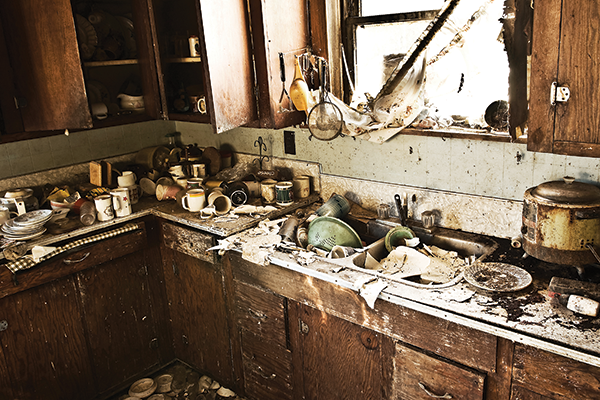Invisible Hand to Be Slapped on the Wrist
The deteriorating state of housing in the student precinct has seen many students put up with sub-par rental properties for too long, but the local bill hopes to set minimum standards for such housing.
The Otago Daily Times reported that Dunedin Mayor Dave Cull had explored the idea of pursuing a local bill to improve the standard of housing not only for students, but for the whole of Dunedin.
“The Council recognises that the standard of housing … leaves a bit to be desired in some places,” Cull said.
Critic spoke with Generation Zero member Lindsey Horne, who said that the group got involved with the DCC after submitting on housing issues as part of the DCC’s spatial plan last year. “We were requesting improvements on housing in Dunedin, with significant emphasis on student housing.”
Generation Zero has since developed ties with OUSA. Having submitted a question about minimum standards of living for the most recent OUSA referendum, the feedback Generation Zero received from that was “kind of where [the relationship] started with OUSA.” Since then OUSA have taken the idea of sub-par housing and “run with it.”
Horne, who is currently living with fellow Generation Zero members in “Dunedin’s Worst Flat” while attempting to refurbish it, said that “living in this terrible shit hole” has made her realise the need for change. “When you are living in a shit hole and paying a decent amount, you realise you are not getting a good deal.”
Cull said that discussions about the contents of the bill were still in the “early stages,” and the form of any minimum standards and how they might be enforced could not yet be detailed.
Horne said the most significant effect of the bill for Generation Zero at this stage is who will be spending money on heating. “A lot of [money] is just coming from students’ pockets. But if we get the landlords to front up the bills to heat up the houses … it will be them fronting the cost rather than us.”
Further, she hoped the bill would give landlords an “incentive” to provide more adequate properties. “At this stage [landlords] can get away with charging heaps of money for shit flats so … why wouldn’t they do that? It’s smart on their part to not do anything.”
OUSA president Francisco Hernandez indicated that he envisaged a housing “warrant of fitness” scheme, with minimum rental standards, being included in the bill. Hernandez imagined there would be a transitional period in which landlords could upgrade their flats. Although this may create annoyance for some landlords, Hernandez seemed indifferent. “I don’t care if [landlords] are annoyed, because frankly they need to up their game a little bit.”
Local bills must gain approval from their local body before being put to Parliament, where they are usually passed as a formality. The bill will have its first reading before going to a select committee, at which stage public submissions are accepted. As for whether the parties would be jointly submitting at the select committee, Horne said submissions would most likely be separate because of everyone’s “different reasoning behind [the bill]” and in order to get “more power in numbers.”








